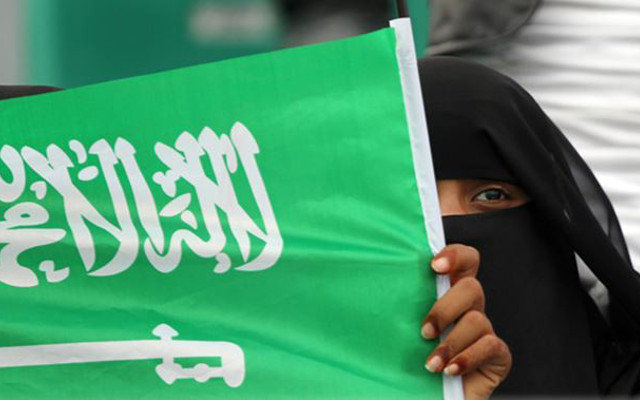2015 was a watershed year for human rights in Saudi Arabia. It began last January, with the death of a cautious king whose experiments with limited reforms ended with the Arab Spring. It draws to a close now, having witnessed a near-record setting spate of executions, worsening repression of reformers and political dissidents, and a foreign adventure that few outside Riyadh see as a success. In between, a new king ushered in an era of domestic and international belligerence. He handed the keys to the kingdom to a younger generation of Saudi rulers, a crown prince and deputy crown prince that have driven the unstinting suppression of political dissent and the unsparing bombing of militant and civilian Yemenis alike.
The Saudi government intended these moves to showcase its arrival as the regional power. Its officials failed to realize that the visible exercise of power comes with a glaring international spotlight. Once practitioners of the backroom dealing and remote funding that lends itself to irregular attention, Saudi higher-ups were used to deflecting periodic human rights reports and weathering the occasional tough news cycle. In 2015, however, they struggled through a year of bad press.
As the calendar changes to 2016, they haven’t yet learned that indignation, incredulity, and outright fabrication are not savvy realpolitik. The Saudi Ambassador to the United Kingdom, Mohammed bin Nawaf bin Abdulaziz, has taken to the press twice in less than two months to excoriate the leader of a political opposition that hasn’t won a parliamentary election since 2005. Criticism from the Labour Party’s Jeremy Corbyn apparently places at risk the nations’ “vital commercial exchange,” and “stands to impede” joint counterterrorism efforts moving forward. Advisers to Deputy Crown Prince Mohammed bin Salman told the Daily Telegraph in November that they “could not understand” demands to commute the death sentences against a group of protesters from the country’s marginalized Qatif region, despite credible reports that none of their trials met the most basic of international standards and that three were arrested as minors. When poor crowd management contributed to a stampede that killed thousands of visitors committing Hajj, the Saudi government publicly lowballed the estimated dead at 769; as international grief and anger mounted alongside the death toll, which currently stands at 2,411, authorities remained mum.
What has boxed government officials into constantly defending themselves to the international press? Commentary on the kingdom’s significant human rights abuses has long nibbled at the heels of government officials, prompting Ambassador Mohammed bin Nawaf’s weary remark that “the kingdom has always had to deal with a lack of understanding.” In prior years, women’s driving protests have been good for a news cycle, and the arrest and mistreatment of a prominent writer or activist would occasionally merit a think piece. Currently, however, it is not only these domestic human rights challenges that have driven the Saudi government’s year of bad press, but also its disregard for civilian life in Yemen.
Deputy Crown Prince and Defense Minister Mohammed bin Salman is learning the hard way that the indiscriminate bombing of a poor, already war-torn neighbor yields direct pushback from the international community. Since March, the Saudi military has compiled a horrific record in Yemen. Air strikes from the Saudi-led coalition destroyed an Oxfam warehouse stocked with humanitarian aid and a hospital run by Doctors Without Borders. They struck multiple wedding parties. They failed to distinguish between residential neighborhoods and military outposts. To date, Yemen’s 2,500-plus civilian casualties are largely attributable to the Saudi government, and the frequent and detailed reporting of Amnesty International, Human Rights Watch, and other monitoring organizations has repeatedly made international headlines. The government responded to this river of ink by pointing an unconvinced finger at Houthi militias, human rights violators themselves but ones which, at last count, piloted no F-16s.
An environment of weekly death-tolls and unpersuasive denials has piqued the international community’s interest in the kingdom’s domestic affairs. Responding to reader interest in content on Saudi Arabia, editors have bumped stories of activist arrests and isolated protests to page one. Suddenly, the British press is publishing an emotional interview with the mother of Ali al-Nimr, a protester from the Shia community sentenced to die for alleged crimes he would have committed as a teenager. Americans are digging into the profile of an obscure poet, Ashraf Fayadh, whom courts sentenced to death for his purportedly blasphemous love poetry. The world notes when Saudi executions exceed 150 victims and expresses outrage at the government’s leverage within the UN Human Rights Council. The government’s canned responses to the concern generated by these cases—supposed cultural misinterpretation or anger over foreign meddling—remain predictable and unconvincing.
All is not lost for the new year, however, as authorities within the kingdom seem to be grasping the connection between basic human rights reforms and positive attention. While Saudi women are not entirely sold on the efficacy of the most recent municipal elections, expanding the franchise to women had foreign governments, alongside the international media, positively gushing. The government’s November promulgation of a formal civil society law earned the cautious encouragement of a rights community that had been holding out hope for any positives from the government before December 31st.
If the Saudi government wants to act as an international power, then it should build on these successes. A new civil society law must come coupled with the release of imprisoned civil society activists. The expansion of women’s right to vote should signal the beginning of the end for the guardianship system. So long as these and other reforms don’t materialize, officials should expect continued international scrutiny. Backroom negotiators and peripheral countries can fly under the radar. Aspiring movers and shakers, especially ones with the rights record of Saudi Arabia, deserve all the front-page treatment that they receive.
Eric Eikenberry is an advocacy associate at ADHRB






